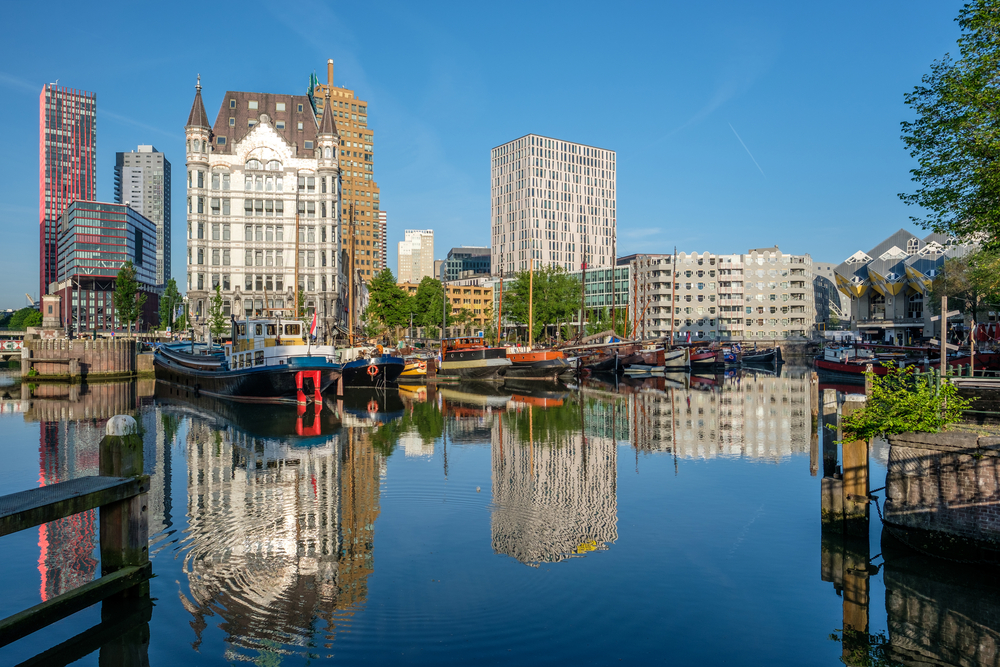It’s been a rough year for hopeful homeowners in the Netherlands, there’s no denying it. However, let’s take a moment to look on the bright side: the Dutch government is taking on the housing crisis as enemy number one (of many).
So, how do they plan on tackling this monster? And what progress has already been made in 2022? Let’s talk about it.
We worked with the experts over at Expat Mortgage Platform to bring you this article. They know the struggles of trying to get a mortgage as an international in the Netherlands — and, along with these hopeful steps, they can help you become a homeowner.
1. Aiming to build 900,000 new houses by 2030

One of the main reasons for the current Dutch housing crisis is the simple fact that there are just not enough houses to choose from.
That’s why, as part of Rutte IV’s cabinet plans, Minister for Housing Hugo de Jonge has forged an ambitious plan: to build 900,000 new homes by the year 2030.
The goal is to eventually be able to build up to 100,000 houses each year — and to be fair to De Jonge, this is looking fairly promising so far. As of the end of July 2022, 43,026 homes have been built in the Netherlands.
Of course, we also need to be realistic about the current energy and nitrogen crisis in the Netherlands. Some experts are saying that the government’s ambitious plans may struggle to become a reality under these factors — but for now, they’re powering through!
2. Setting aside €7.5 billion to build affordable housing
Speaking of new builds, the cabinet has also set aside a whopping €7.5 billion to ensure that these new builds are actually accessible to buyers.
And, of the 900,000 thousand new Dutch homes that will crop up on the market over the next 10 years, two-thirds of these will be sold below the current National Mortgage Guarantee (NHG) limit of €355,000.
De Jonge has also called for 30% of these new builds to be offered as social housing, meaning that it’s not just the middle class who will be benefiting from these developments.
READ MORE | How much money can I borrow when getting a mortgage in the Netherlands?
In fact, all going well, the majority of these new builds should be valid options for hopeful homeowners in the Netherlands. Start chilling the champagne! 🍾
3. Investing €1.2 billion in infrastructure to make areas more accessible

The Dutch government wants to make certain regions of the country more appealing for people to live in. And how do you do that? By investing in some decent infrastructure!
The cabinet has set aside €1.2 billion in order to fund projects that will make it easier for residents to commute and live in certain parts of the country.
READ MORE | 7 underrated places to live outside of the Randstad
This will not only make way for more room for building, but it will also help speed up the actual building process. Klinkt goed! (Sounds good!)
4. Hoping to introduce a cap on rent in the mid-market housing sector
Another plan coming from the Dutch cabinet is potentially implementing a system to cap rent in the mid-market housing sector. This was suggested in July by De Jonge as part of the “Affordable Housing” memorandum.
What would this look like exactly? Well, if the cabinet is to have its way, the plan would put a limit on rent in the mid-market, with renters paying a maximum of €1,250 per month.
READ MORE | Rent or buy a house in the Netherlands? What you need to know in 2022
Those in the mid-market housing sector often earn low to modest incomes and cannot afford to own private property.
So, introducing a rent cap will prevent landlords from asking this group of people for (even more) extortionate rent. Now that’s a change we can get on board with!
It’s worth noting that there is a counterargument coming from landlords, and we should probably be good and hear all sides. They warn that a rent cap will restrict landlords and prevent them from making necessary renovations.
5. Giving municipalities the power to deter landlords

Some of the Netherlands’ largest municipalities, such as Rotterdam, The Hague, Utrecht, and Amsterdam, now have the power to bring in property purchase protections this year. To understand how great this is for the housing market, let’s explain what exactly this means.
At the beginning of 2022, these municipalities were endowed with the holy power to introduce policies that would discourage investors and encourage property to be owned by those who actually intended to live there.
READ MORE | 7 questions answered about getting a Dutch mortgage in 2022
For example, Rotterdam and Amsterdam have now introduced a self-occupancy obligation for certain homes. Those who buy the property must also prove that they will actually be the ones to live in it — what a strange idea?!
Essentially, the protections prevent much-needed housing from being bought up by investors and big landlords. Needless to say, this is certainly some hopeful housing news.
6. Converting office buildings to temporary housing
The government is looking to solve the housing crisis as soon as possible, so in the meantime, they’re getting quite inventive.
Therefore, the Dutch cabinet plans on making a home out of anywhere possible in order to accommodate not just the general population, but also those in need, such as the homeless and asylum seekers.
READ MORE | Here’s how you can help Ukraine from the Netherlands [UPDATED]
As a result, recent months have seen office spaces, hotels, and even cruise ships transformed into temporary housing.
7. Tackling big landlords with tax

In 2021, the Dutch cabinet made the decision to raise the transfer tax to 8% for those who planned on buying property for investment purposes (i.e., without actually living there.) This used to be 2% — so it was certainly a deterrent for cheeky landlords and investors.
In fact, in 2022, we have seen a hopeful trend emerge, the number of homes bought up by investors has dropped, and the number of first-time buyers has increased!
It has now been decided that this transfer tax will be hitched up yet again for opportunistic investors, meaning it will sit at 9%. Make way, landlords, it’s our turn.
Feeling hopeful about buying a home in the Netherlands? Us too! The next step is to reach out to Expat Mortgage Platform for advice on how to secure your Dutch dream home. It won’t be long until you have those keys in your hand! 🔑
Do you think these steps will help the current housing crisis? Tell us your thoughts in the comments below!

I’m so glad I came across this! My husband and I are going to relocate to Amsterdam in June ’23, after having lived in Dublin for the last decade. It’s been pretty crap to experience the housing crisis, with very little support or hope from the state. I know the Dutch housing market has its issues too, but it’s still so refreshing to see they are doing the things!